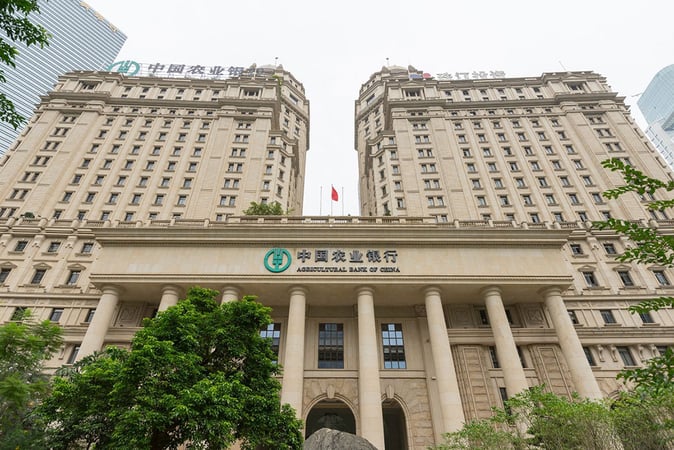This strategic investment, totaling around $65 million, translates to approximately 0.01 percentage point in each bank. The impact on the market was immediate and substantial, with shares of these major banks soaring between 2.43% and 4.73% in the early hours of Thursday.
China’s sovereign wealth fund, Central Huijin Investment Ltd, has taken a significant step to bolster the country’s struggling stock market. In a move similar to its 2015 intervention, Huijin has increased its stake in China’s top four banks, namely the Bank of China, the Agricultural Bank of China, the China Construction Bank, and the Industrial and Commercial Bank of China.
This strategic investment, totaling around $65 million, translates to approximately 0.01 percentage point in each bank. The impact on the market was immediate and substantial, with shares of these major banks soaring between 2.43% and 4.73% in the early hours of Thursday. Moreover, this move caused the CSI 300 index to rise by 0.69%.
Addressing Economic Challenges and Fostering Stability
Amidst the challenges in the Chinese Stock Exchange Market, CSI 300, a stock market index that consists of the top 300 stocks traded on the Shanghai and Shenzhen Stock Exchange, fell to its lowest level in 11 months last week Tuesday. To address this market downturn, the Chinese government implemented several measures to stabilize the market, including slowing down the pace of initial public offerings (IPOs), curbing sales by certain major shareholders, reducing the stamp duty on stock transactions, and easing rules related to margin trading.
Central Huijin Investment’s decision to reinforce its holdings in China’s top four banks comes at a critical juncture for China’s economy. Amid concerns about a real estate crisis, as top companies like Evergrande and Country Garden are struggling to manage their debt obligations, deflationary pressures are mounting. The nation’s growth target of approximately 5% for the year is also in jeopardy. Economists and investors have urged the government to intervene and stabilize the market.
Huijin’s Historical Rescues and Their Impact on the Chinese Market
Huijin’s injection of fresh funds has been met with optimism, signaling the government’s commitment to addressing economic challenges and ensuring stability in the financial sector.
This recent action by Huijin isn’t the first time it has done such a thing. According to analyst Hao Hong, Huijin has intervened on six other occasions, including during the 2008 financial crisis and the 2015 market crash. These government-backed interventions have historically stabilized stock prices and boosted investor confidence. Hao Hong emphasized that Huijin’s purchases send a strong top-down signal, helping shore up market confidence. Fund manager Li Fuwen echoed these sentiments, stressing the need for a fresh source of funds given the current economic climate.
Central Huijin, China’s sovereign fund under the state council, announced to increase stakes in China’s big four banks and its intention to continue to do so in the next six months.
Although this round of buying only increased Huijin’s stakes in the big four banks by 0.1% each… pic.twitter.com/EKTqajsHsi
— Hao HONG 洪灝, CFA (@HAOHONG_CFA) October 12, 2023
Despite the short-term relief, experts caution that fundamental economic issues will ultimately shape the market’s trajectory. Investors eagerly await China’s third-quarter GDP data, slated for release next week, which should offer insights into the country’s economic health.
The global financial community is closely monitoring China’s economic indicators, recognizing that the nation’s efforts to navigate these challenges will profoundly impact the global economy. As stakeholders anticipate further policy decisions in the coming months, they remain hopeful for sustained stability and renewed confidence in China’s financial markets. Huijin’s bold steps have injected optimism, underscoring the government’s commitment to addressing economic challenges and fostering stability.
Temitope is a writer with more than four years of experience writing across various niches. He has a special interest in the fintech and blockchain spaces and enjoy writing articles in those areas. He holds bachelor’s and master’s degrees in linguistics. When not writing, he trades forex and plays video games.




